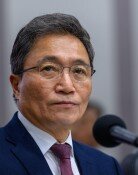[Op-Ed] Stem Cell War
The U.S. government gave a significant boost to embryonic stem cell research last week by lifting a ban on federal funding for the sector. It did so in light of the huge benefits the research will bring. The Bush administration over the past seven years had imposed restrictions on the field, allowing other countries to catch up. Britain and Japan have made remarkable progress in the sector. Britain has emerged as the world leader in the field by allowing embryonic stem cell research between species.
Japan has developed a technology that can prevent a bioethics controversy. The method to produce omnipotent stem cells extracts stem cells by injecting a virus into skin cells instead of human eggs. Japanese researchers have developed this technology while searching for a method not requiring human eggs in an attempt to avoid criticism from religious circles. Germany, Spain, Singapore and Israel are also at the forefront of such research. The United States, however, has not been sitting on its hands. The U.S. state of California has invested 300 million dollars per year in the field. In addition, the United States is the world leader in the number of both stem cell theses and patents.
Koreas stem cell research remains in a stalemate, however, due to the 2005 research fraud of Hwang Woo-suk. Some say Korea is still suffering from the scandals trauma since the majority of Koreans have yet to recover from the shock. The governments lackluster support of 35 billion won (24.6 million U.S. dollars) a year has further aggravated the situation. The sum is a far cry from 270 billion won (190 million dollars) the British government pours into the field and 100 billion won (70.3 million dollars) of the Japanese government. More important than state support is forming a public consensus that the country should restart the research before too late.
Samsung Economic Research Institute predicts the world market for stem cell research will reach 32.4 billion dollars in 2012. If treatment utilizing stem cells turn out successful as scientists expect, this will revolutionize the way human diseases are treated and raise human life expectancy, not to mention induce tremendous economic effects. The resumption of U.S. government support for embryonic stem cell research has triggered a full-fledged competition among countries in the field. Not to be left behind, Korea must resume such research by putting the Hwang scandal behind as soon as possible.
Editorial Writer Hong Chan-sik (chansik@donga.com)







